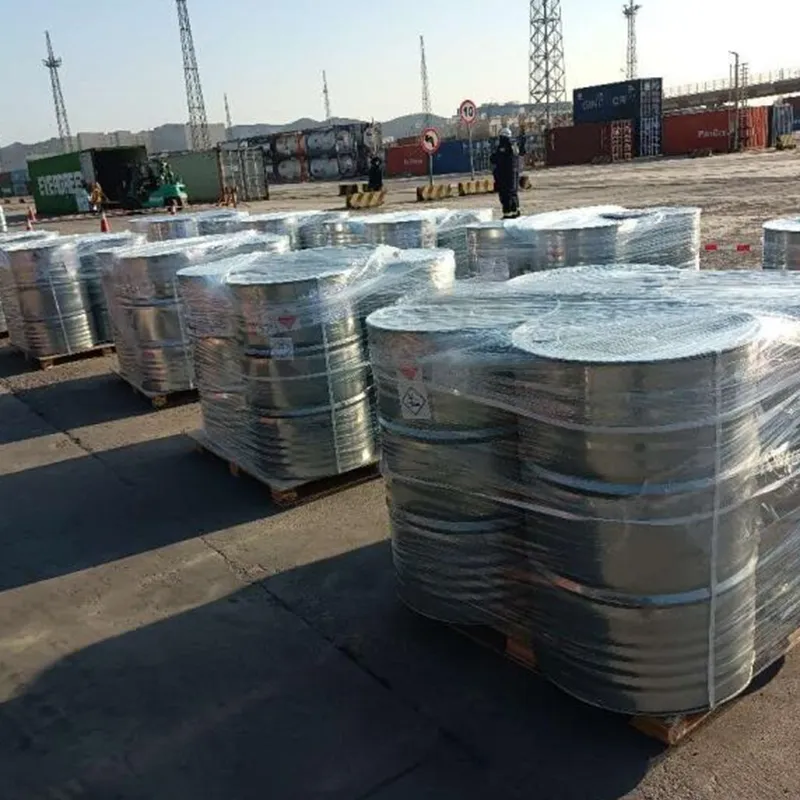
anti foaming agent in food
Understanding Anti-Foaming Agents in Food
In the food processing industry, maintaining product consistency and quality is paramount. One of the lesser-known yet critical components aiding in this endeavor is the anti-foaming agent, also referred to as defoamers. These additives play a crucial role in preventing the formation of foam during various stages of food processing and manufacturing. The significance of these agents can be seen in operations ranging from cooking and mixing to packaging and storage.
Foam formation in food processes can lead to several issues. Firstly, excessive foam can cause overflows, leading to product loss, which can be both economically detrimental and wasteful. Secondly, it can hinder the efficiency of heat transfer during cooking. This is particularly significant in processes such as frying or boiling, where even heat distribution is key to achieving the desired texture and flavor. Additionally, foam can affect the appearance of finished products, making them less appealing to consumers.
Understanding Anti-Foaming Agents in Food
Natural anti-foaming agents, often preferred for organic and clean-label products, include substances like vegetable oils, lecithin, and certain glycerides. These agents are generally recognized as safe (GRAS) by regulatory authorities and provide an effective solution for controlling foam in food processing. For instance, lecithin, a phospholipid found in egg yolk and soybeans, is commonly used in emulsions and baked goods to minimize foaming without altering the flavor profile significantly.
anti foaming agent in food

On the other hand, synthetic anti-foaming agents are often used for their effectiveness and cost-efficiency. These include compounds such as dimethylpolysiloxane, which is widely used in oils and fats. While effective, the use of synthetic agents may raise concerns among health-conscious consumers, prompting many manufacturers to seek natural alternatives.
The regulatory landscape surrounding anti-foaming agents is also important. Various regulatory bodies, such as the U.S. Food and Drug Administration (FDA) and the European Food Safety Authority (EFSA), oversee the approval and use of these additives. It is essential for food manufacturers to ensure that their use complies with local regulations to guarantee consumer safety and product integrity.
Moreover, the addition of anti-foaming agents must be balanced with considerations for consumer preferences and dietary restrictions. With the rising demand for transparency in food labeling and healthy ingredients, manufacturers must choose their defoaming agents wisely. This has led to a growing trend toward the use of naturally derived anti-foaming agents, which appeal more to health-conscious consumers.
In conclusion, anti-foaming agents are vital additives in the food industry, playing a crucial role in maintaining quality and consistency while ensuring efficient processing. Whether derived from natural sources or created synthetically, these agents help in managing foam production, thus enhancing the overall quality of food products. As consumer preferences continue to evolve, the focus on safe, effective, and transparent food processing will only become more critical. Therefore, understanding the role of anti-foaming agents and their implications will be essential for food manufacturers looking to thrive in an ever-competitive marketplace. With ongoing research and development, the future of anti-foaming agents will likely see even more innovations, aligning with the demand for cleaner and healthier food products.
-
Aluminum Hydroxide: Quality Gels & Dried Gel AntacidNewsAug.31,2025
-
Buy High-Quality Trichloroisocyanuric Acid for Sale | TCCA 90% SupplierNewsAug.30,2025
-
Pure Sodium Dichloroisocyanurate Dihydrate | Powerful DisinfectantNewsAug.29,2025
-
Industrial Chemicals: Quality & Purity for Every IndustryNewsAug.28,2025
-
Nitrile Rubber Honoring Strict Production StandardsNewsAug.22,2025
-
Aspartame Ingredients Honoring Food Safety ValuesNewsAug.22,2025
-
Fertilizer for Balanced Plant NutritionNewsAug.22,2025
Hebei Tenger Chemical Technology Co., Ltd. focuses on the chemical industry and is committed to the export service of chemical raw materials.
-

view more DiethanolisopropanolamineIn the ever-growing field of chemical solutions, diethanolisopropanolamine (DEIPA) stands out as a versatile and important compound. Due to its unique chemical structure and properties, DEIPA is of interest to various industries including construction, personal care, and agriculture. -

view more TriisopropanolamineTriisopropanolamine (TIPA) alkanol amine substance, is a kind of alcohol amine compound with amino and alcohol hydroxyl, and because of its molecules contains both amino and hydroxyl. -

view more Tetramethyl Thiuram DisulfideTetramethyl thiuram disulfide, also known as TMTD, is a white to light-yellow powder with a distinct sulfur-like odor. It is soluble in organic solvents such as benzene, acetone, and ethyl acetate, making it highly versatile for use in different formulations. TMTD is known for its excellent vulcanization acceleration properties, which makes it a key ingredient in the production of rubber products. Additionally, it acts as an effective fungicide and bactericide, making it valuable in agricultural applications. Its high purity and stability ensure consistent performance, making it a preferred choice for manufacturers across various industries.





